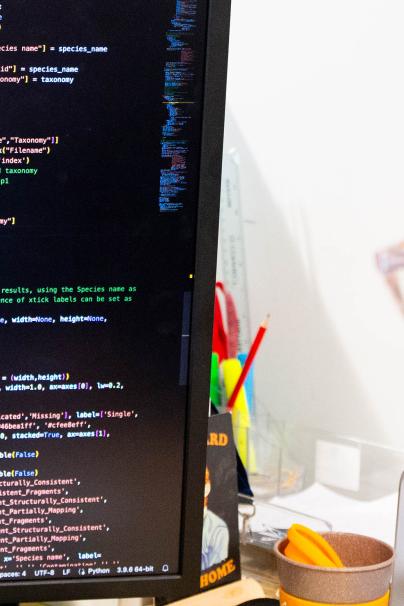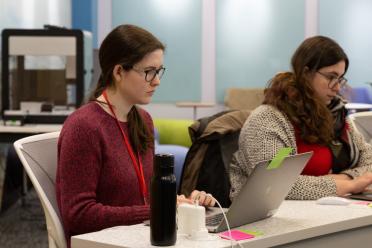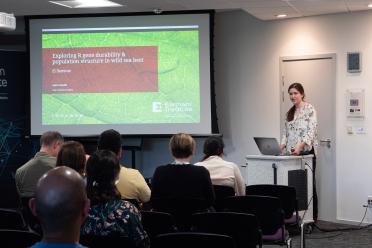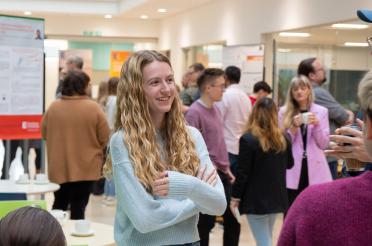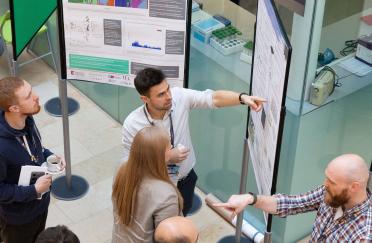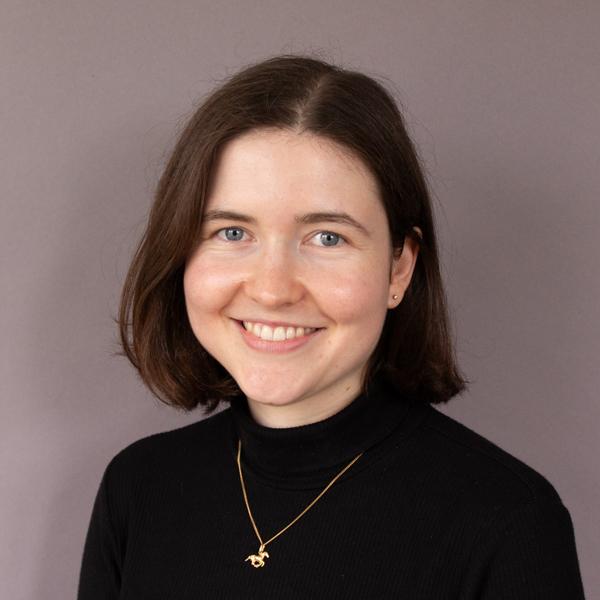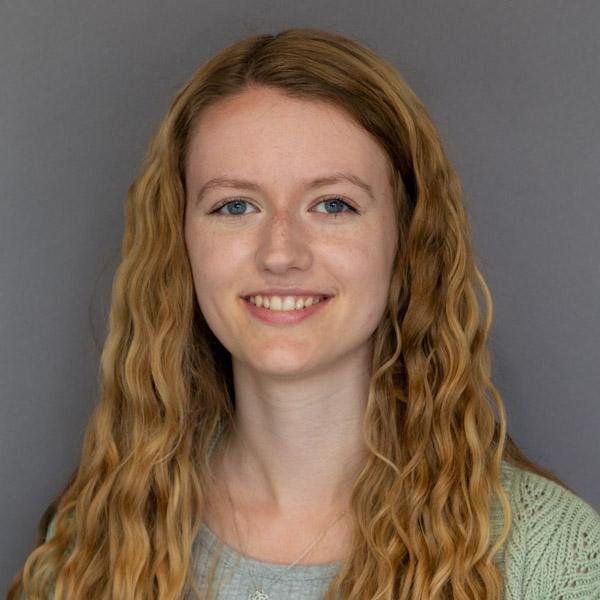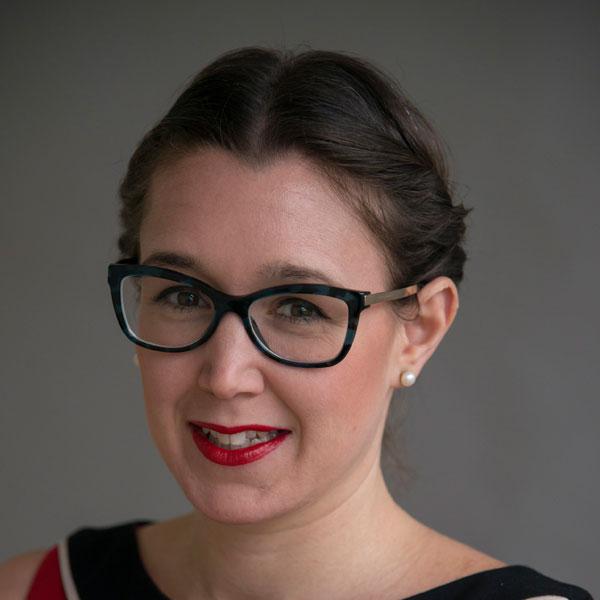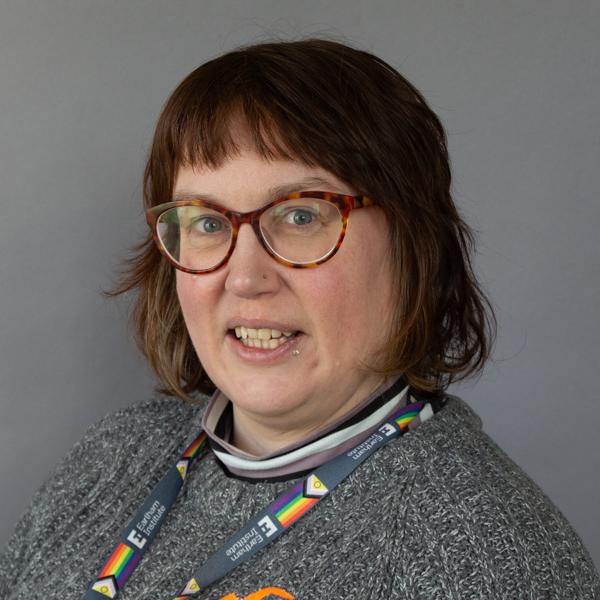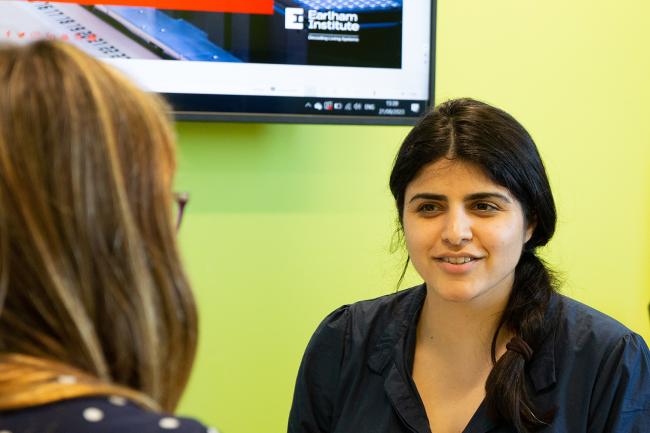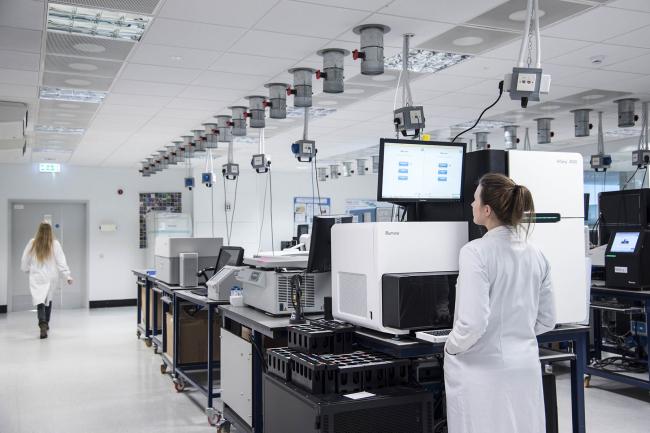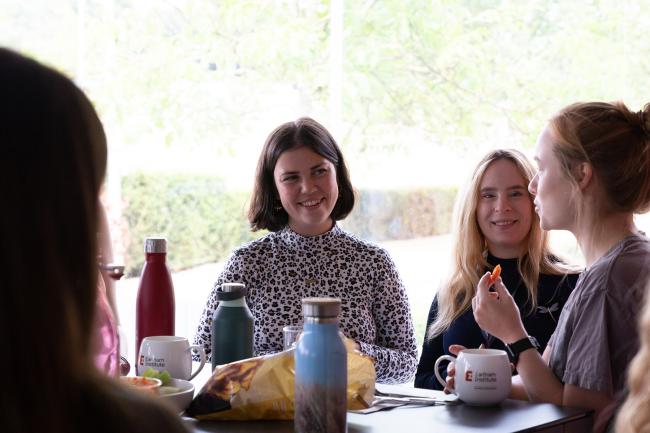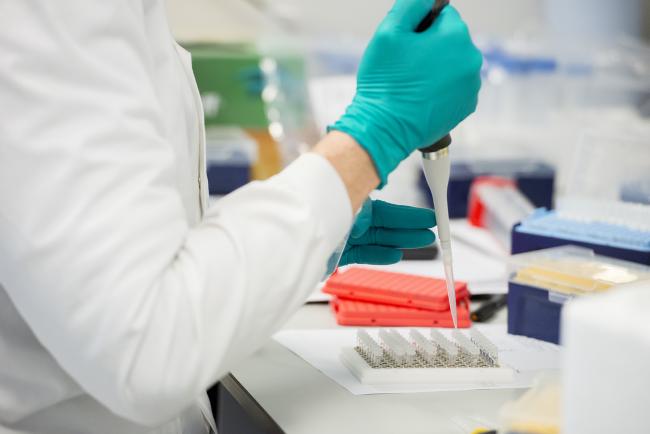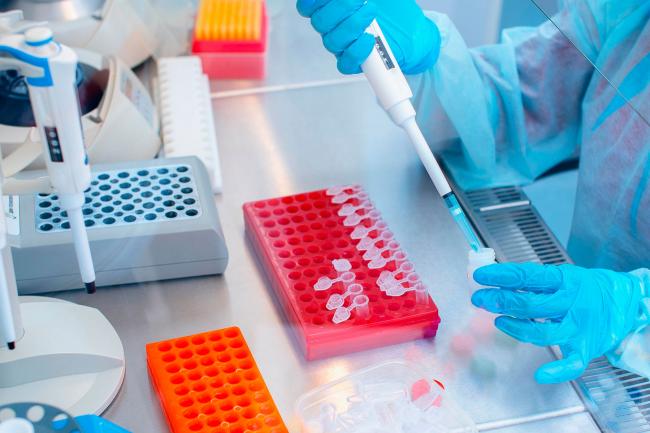Dr Emily Angiolini is Head of Advanced Training and coordinates the Year in Industry programme for the Institute.
“The Earlham Institute is a welcoming and culturally diverse environment, and lots of our staff have followed non-traditional paths,” she says.
“We offer a cross-disciplinary environment, giving successful applicants the chance to work across multidisciplinary teams and the chance to try out lots of different things, rather than being restricted to a small team.
“Our Year in Industry students are able to explore new techniques in a relatively risk-free setting, learning from diverse career paths - not just in research, but in teams overseeing business development and science communication.”
Emily says students from a wide range of degree programmes - biological sciences, natural sciences, biochemistry, computer science and mathematics, - would be eligible.
“The majority of applications come from students in a biological or natural sciences discipline, but it isn’t limited to that,” she says.
“Anyone with a relevant interest - computational scientists looking for an applied research project, for example, or mathematicians interested in modelling population genomics - is welcome to apply.”
